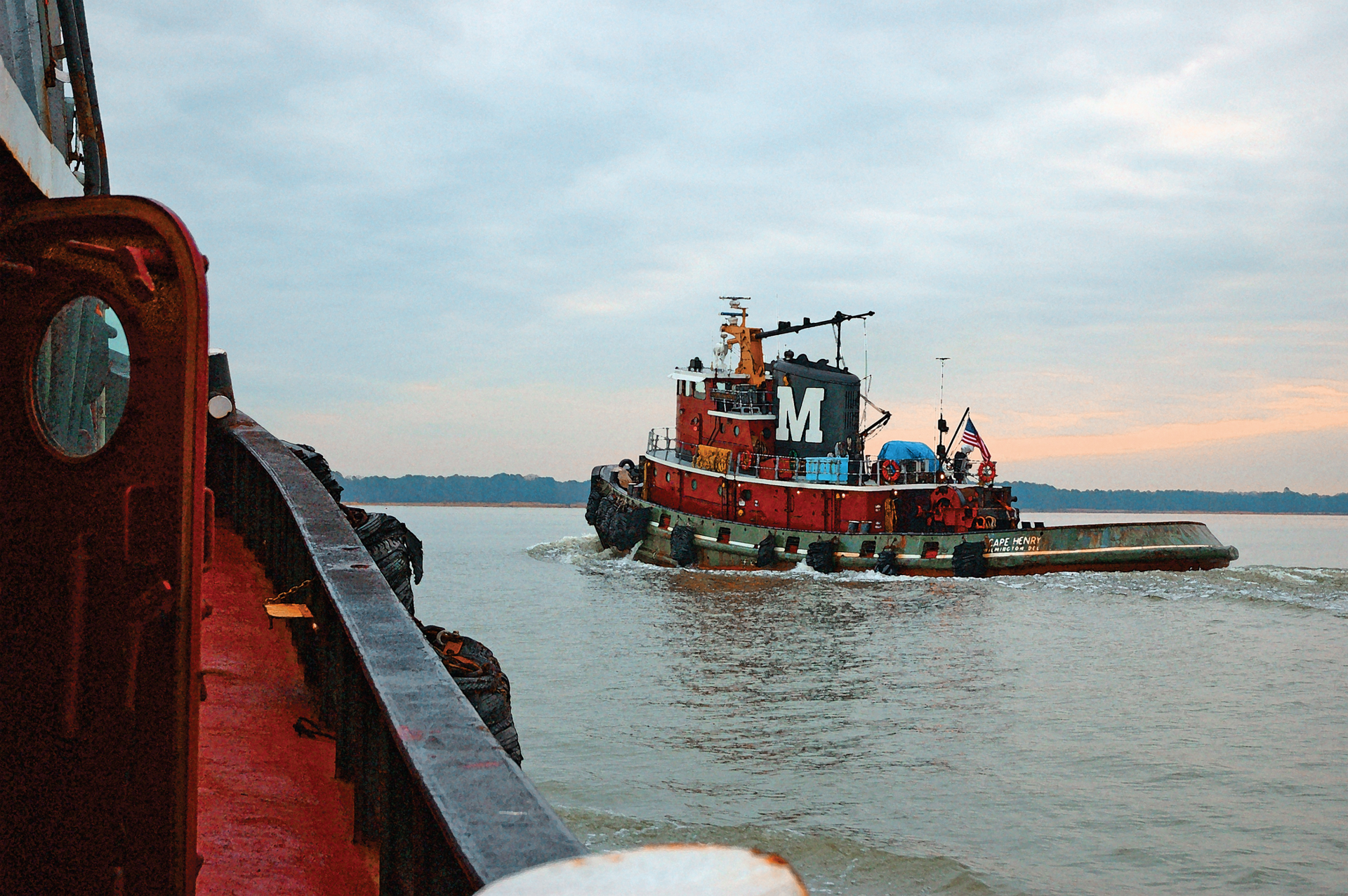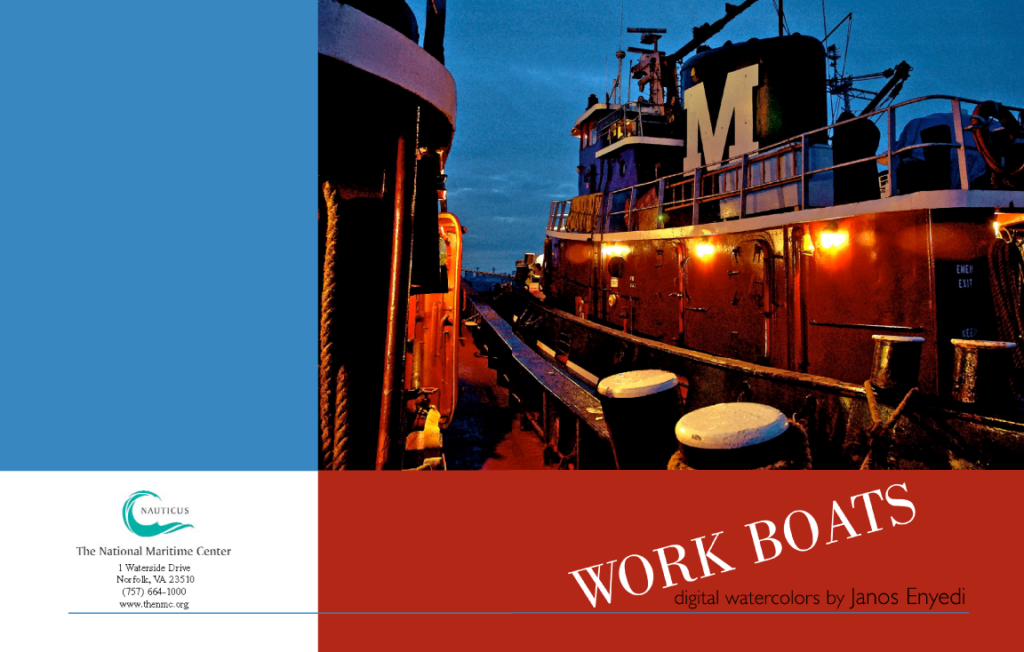Work Boats Series: 2006
Artist’s Statement
“Work boats have been a vital presence on America’s waterfronts for over two hundred years. Yet, they are mostly overlooked by all but those who work aboard or around them and a small community of devoted aficionados. Work boats are not generally built to be pretty, although their lines and grace underway can be startlingly captivating. Function dictates their form. They are tough and built to work hard, performing specific tasks. They take regular beatings, both from rugged use and harsh conditions. Their fundamental task is to physically and forcefully confront much larger vessels, maintaining control without inflicting any damage. Literally and figuratively they become the engines of those they serve.
Work boats come in all shapes, sizes and colors and perform myriad functions critical to maritime commerce. Tugboats, rescue and fireboats, dredgers, harbor tankers, barges, pilot launches and even passenger vessels like the Staten Island Ferry and the Maid of the Mist at Niagara Falls are in the work boat category.
When most of us think of work boats, tugboats come to mind. In lore and reality they are seen as the muscle of our waterways and harbors. Some perform multi-tasks such as docking, pushing and towing. There are harbor and inland river tugs, push boats, towboats and articulating tugs that nestle in behind specially designed massive fuel barges and are capable of working on openwater.
Beginning in the early 19th Century, America’s urban centers, most situated on lake, river or coastal sites, began growing rapidly, requiring an ever-expanding stream of products and materials to provide for their burgeoning populations and commerce. By midcentury our great Industrial Age was beginning. With the advent of steam powered, steel-hulled vessels, ships of ever-increasing size, capacity and numbers were constructed.”
Janos Enyedi, 2006
excerpted from Work Boat, catalog.
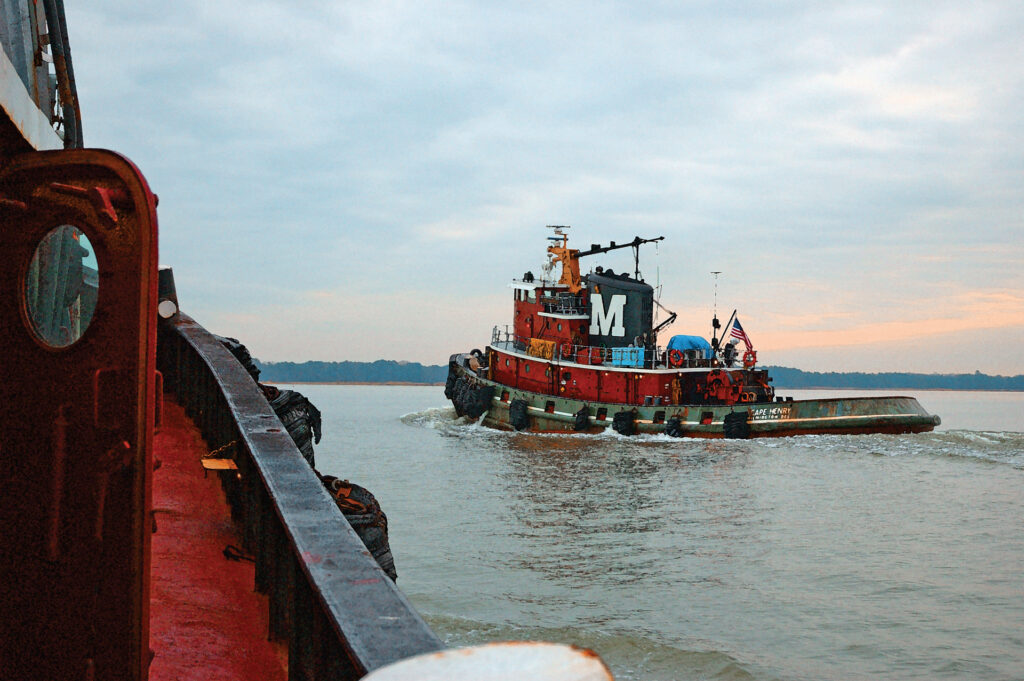
Drum Point and Cape Henry heading to Work, James River, 2006
Digital Watercolor
H. 38” L. 57”
Paul T. Moran and Massachusetts Approaching the Queen Mary II, 2006
Digital Watercolor
H. 6.5” L. 17”
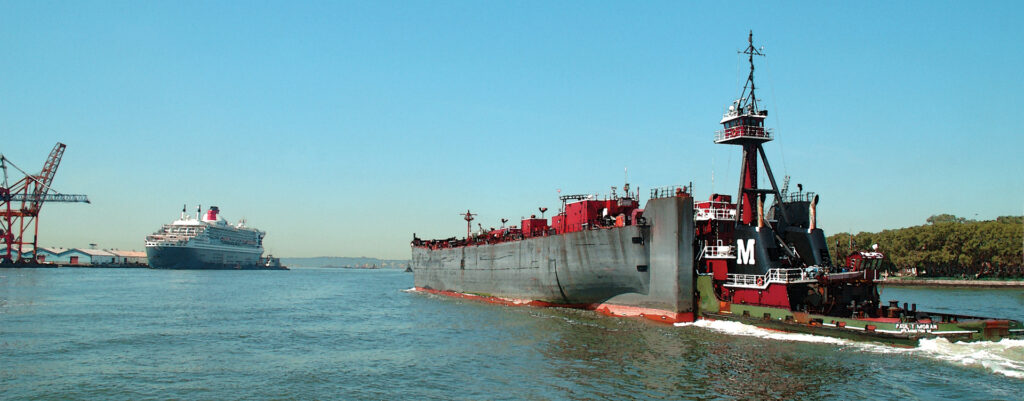
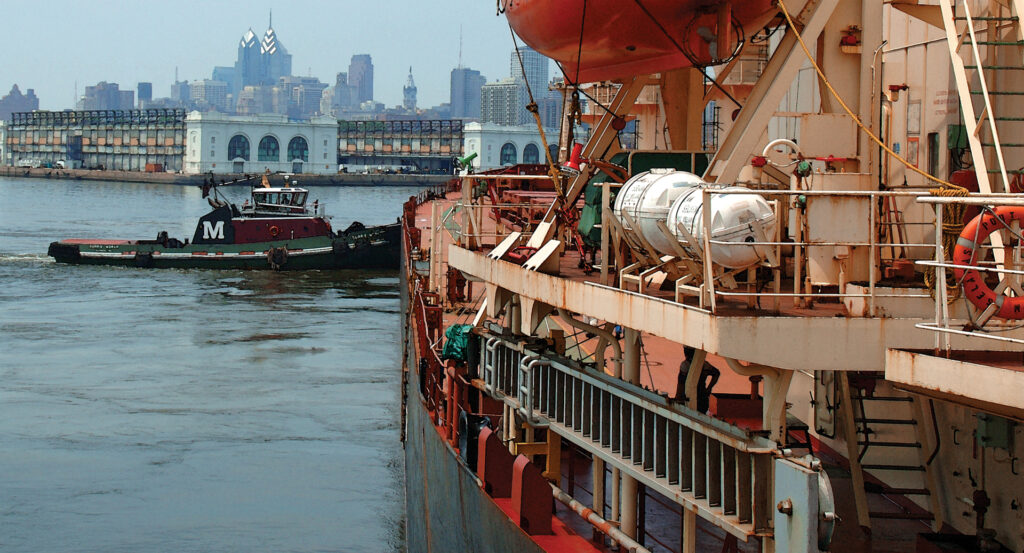
Tight Turn – Surrie Moran and Alam Selaris, Philadelphia, 2006
Digital Watercolor
H. 28.5” L. 52”
Cape Romain Pushing the MSC Semia into the Port of Baltimore, 2006
Digital Watercolor
H. 38” L. 57”
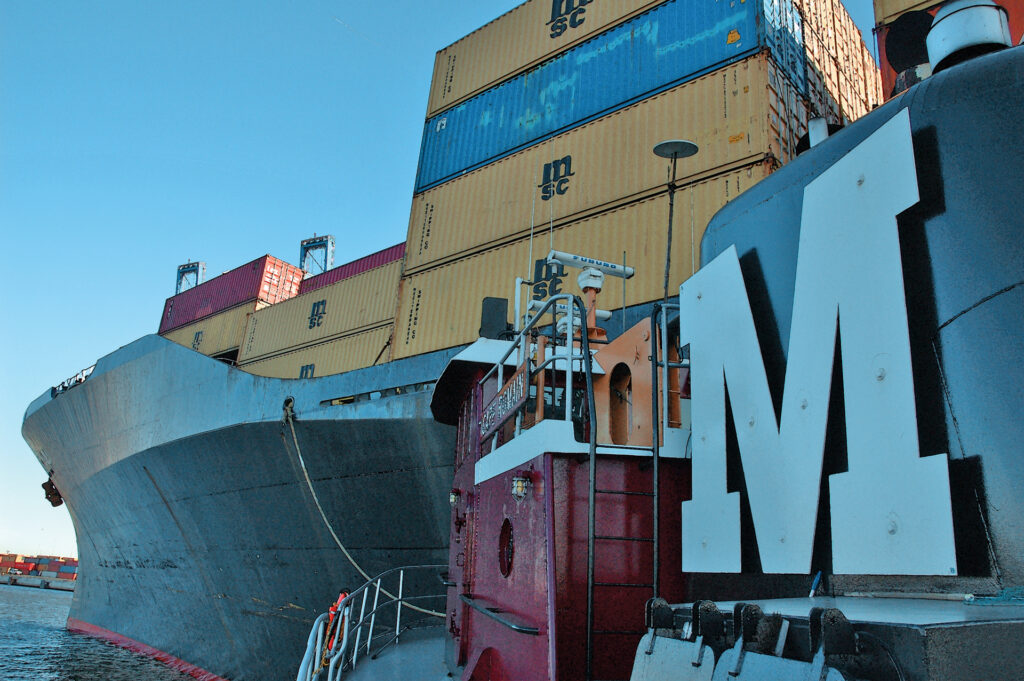
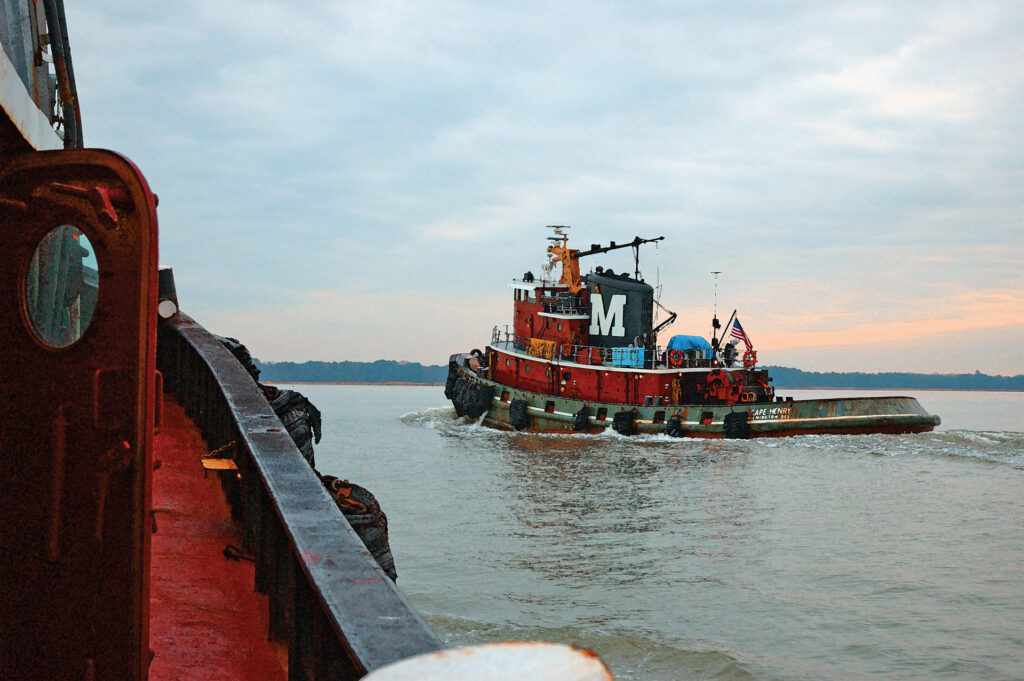
Drum Point and Cape Henry Heading to Work, James River, 2006
Digital Watercolor
H. 38” L. 57”
Drum Point and Cape Henry Rafted Up, 2006
Digital Watercolor
H. 38” L. 52”
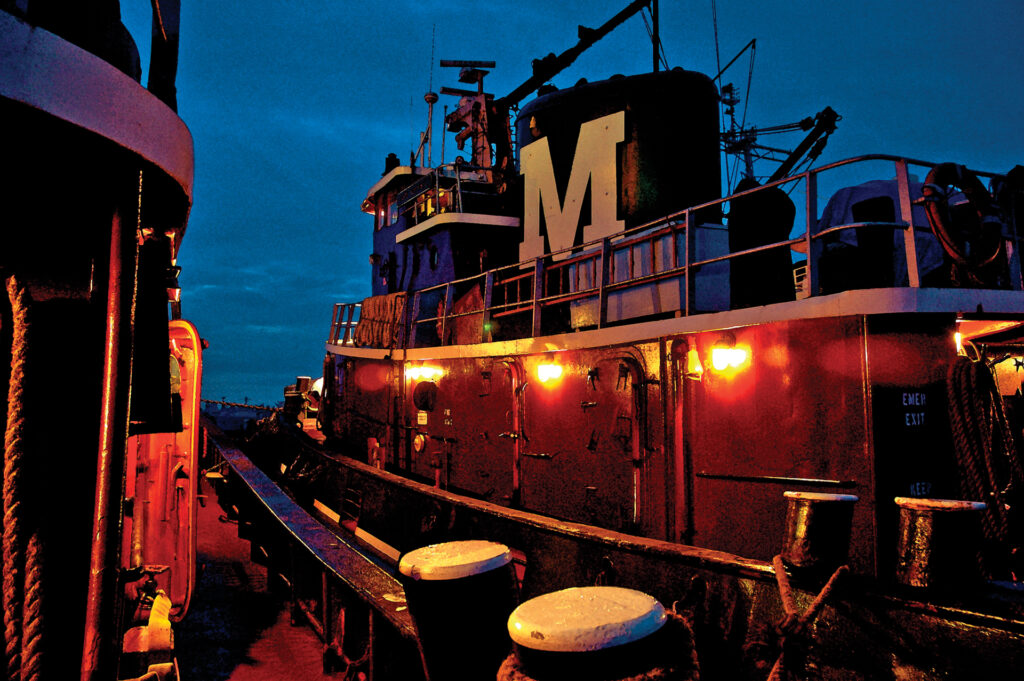
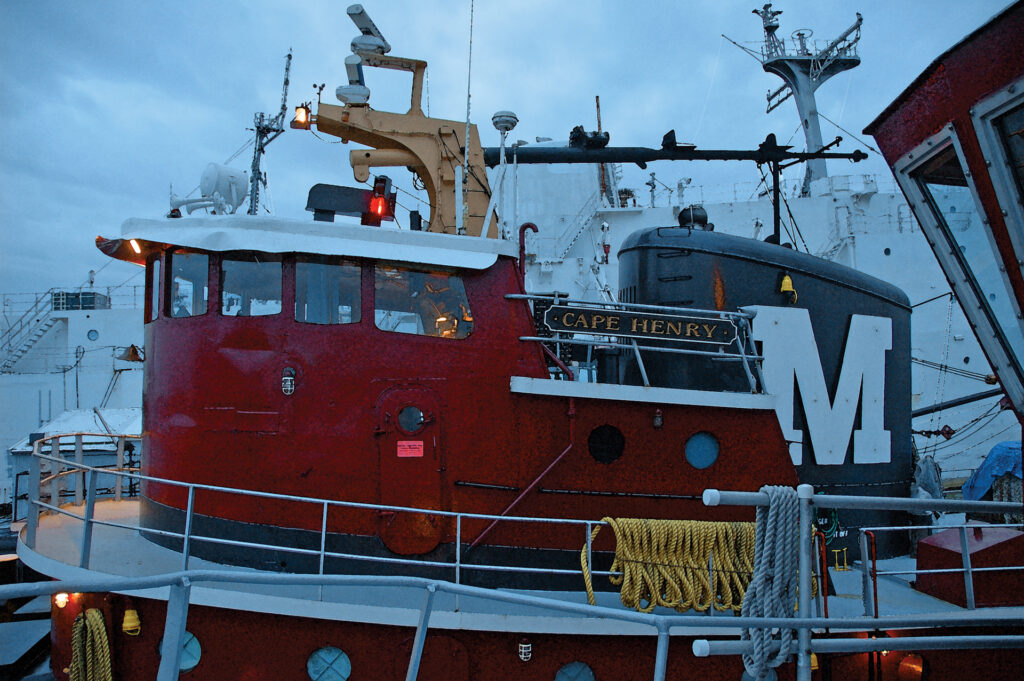
Cape Henry, 2006
Digital Watercolor
H. 11.5 L. 17.25”
Surrie Moan Approaching the S.S. United States, Philadelphia, 2006
Digital Watercolor
H. 8” L. 17”

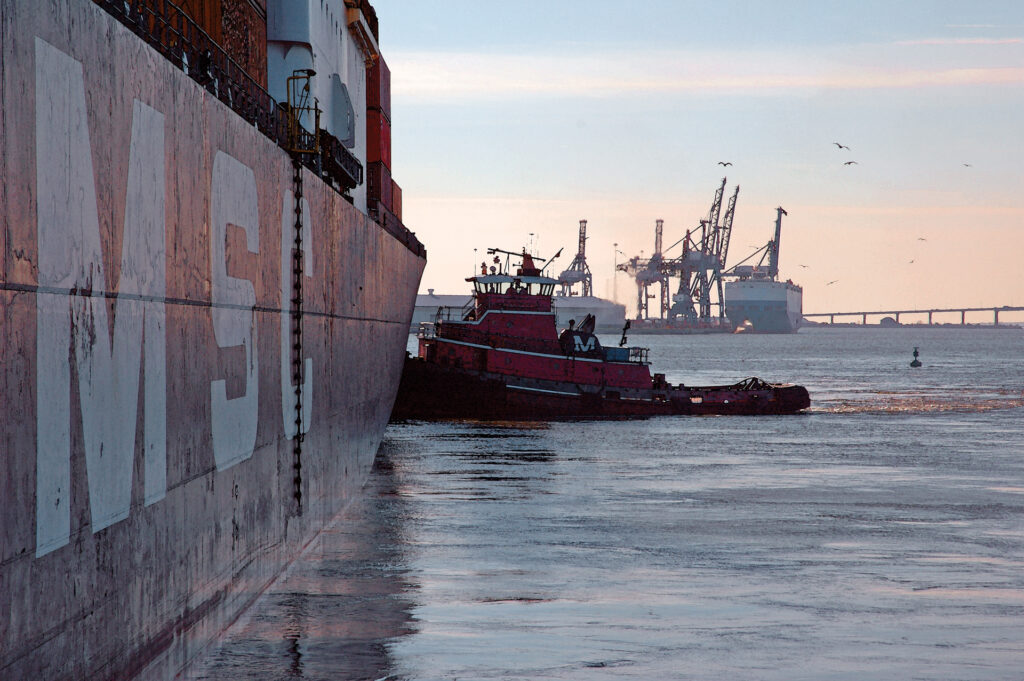
Sewells Point Turning MSC Semia, Baltimore Maryland, 2006
Digital Watercolor
H. 10.75” L. 16;25”
The Rolfe Williams Heading Down Kill Van Kull, 2006
Digital Water
H. 8” L. 17”
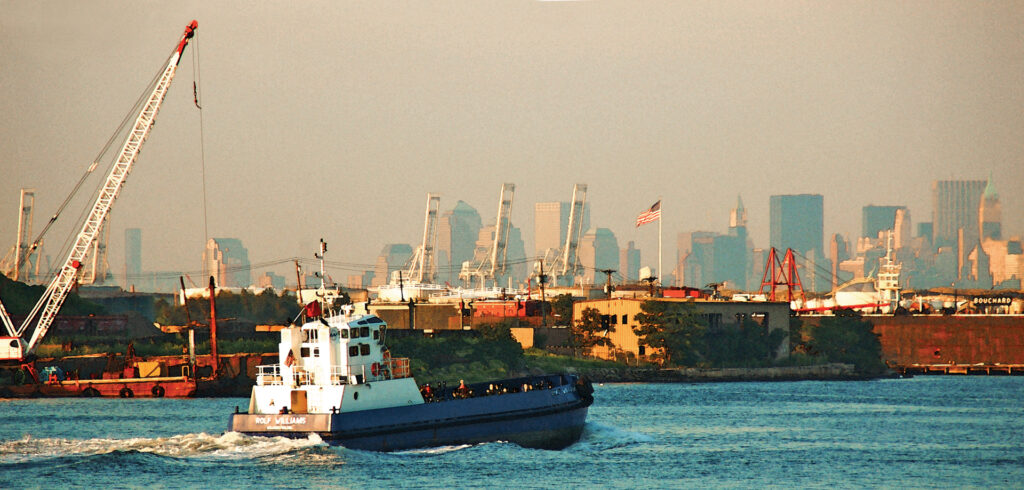
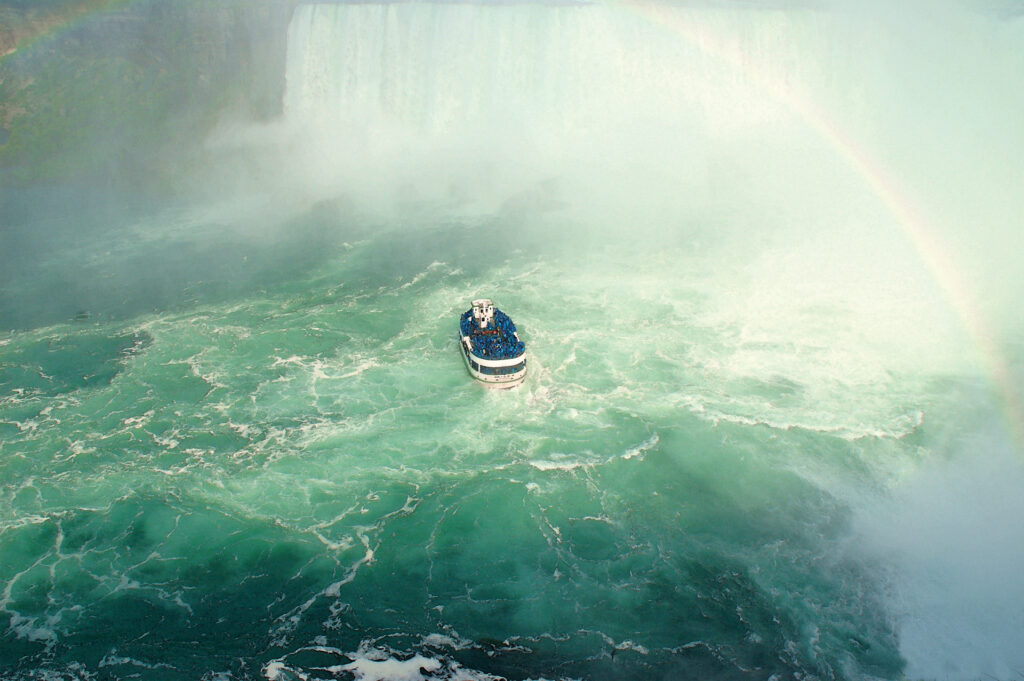
Maid of the Mist VII, Niagara Falls, 2006
Digital Watercolor
H. 11.25” L. 17”
Jezebel, (Bridge Builder IV), Woodrow Wilson Bridge, 2006
Digital Watercolor
H. 11.25” L. 16.75”
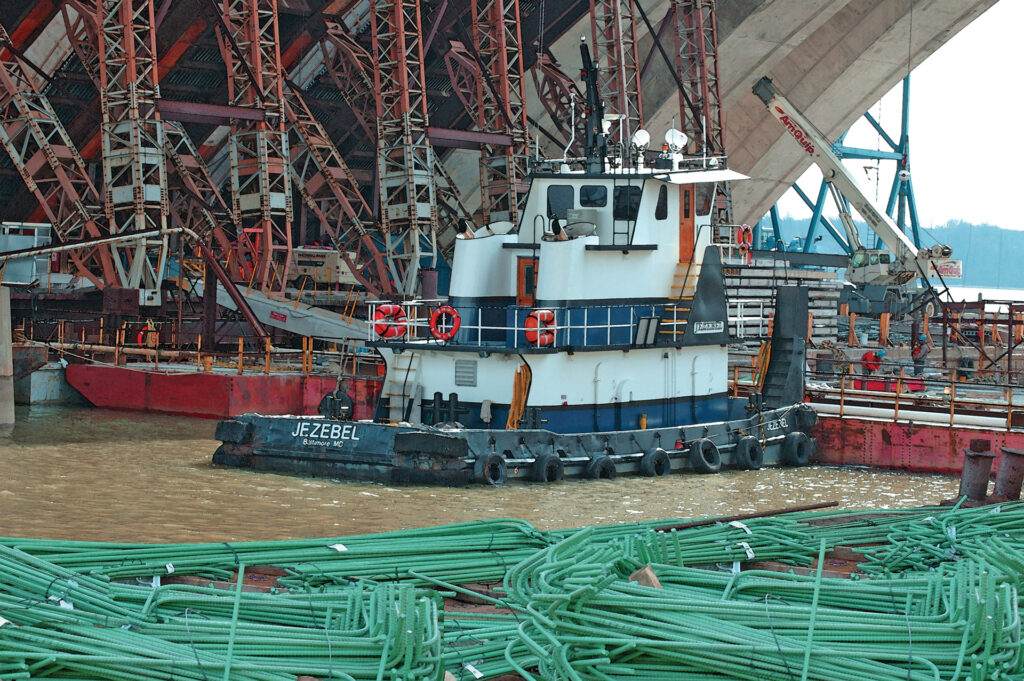
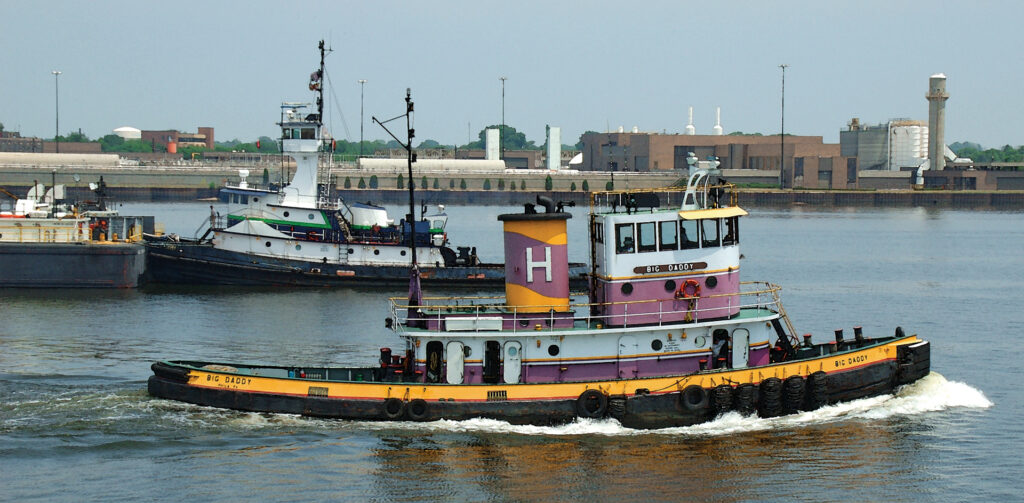
Big Daddy on the Delaware, 2006
Digital Watercolor
H. 8.25” L. 17”
The Work Boats Series is featured in this 16-page exhibit catalog.

